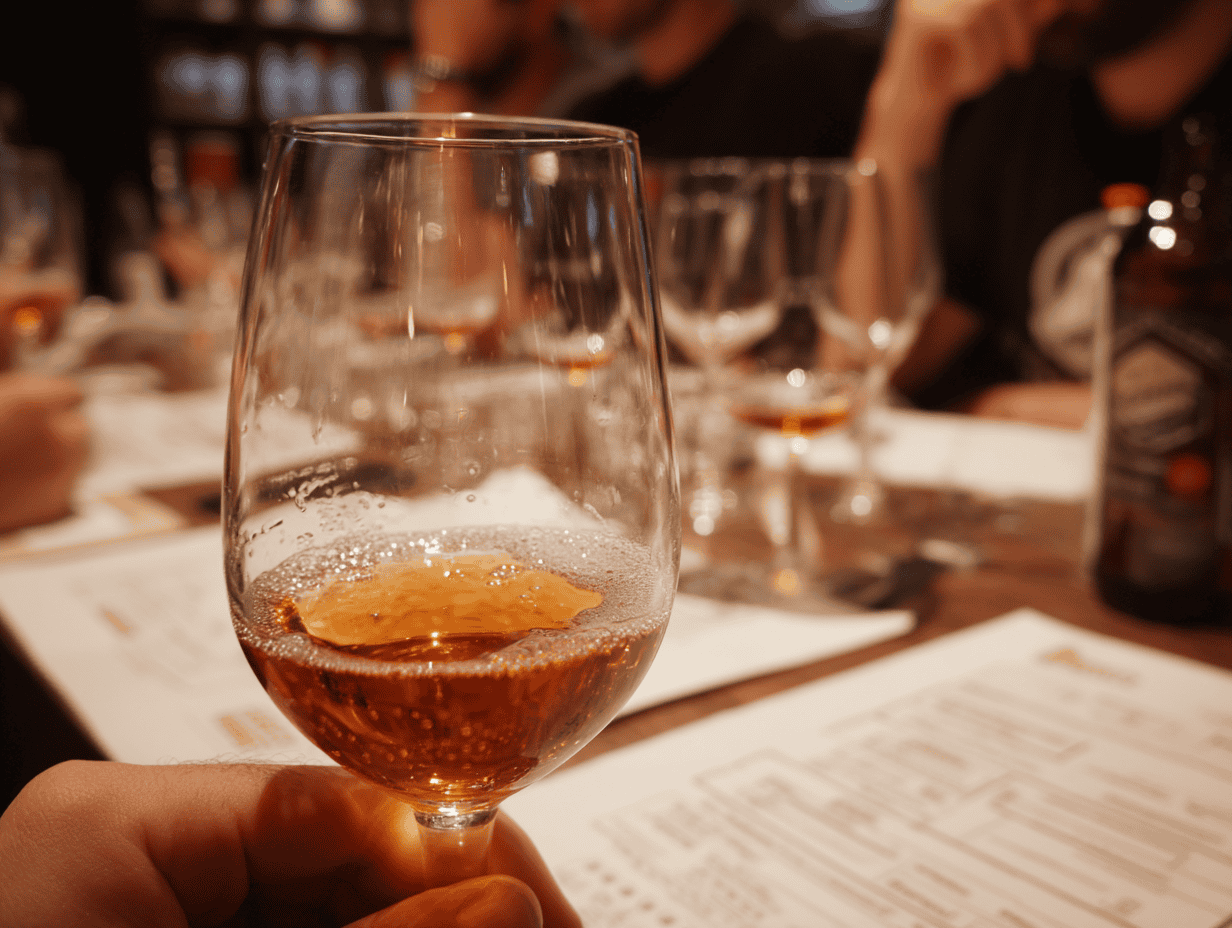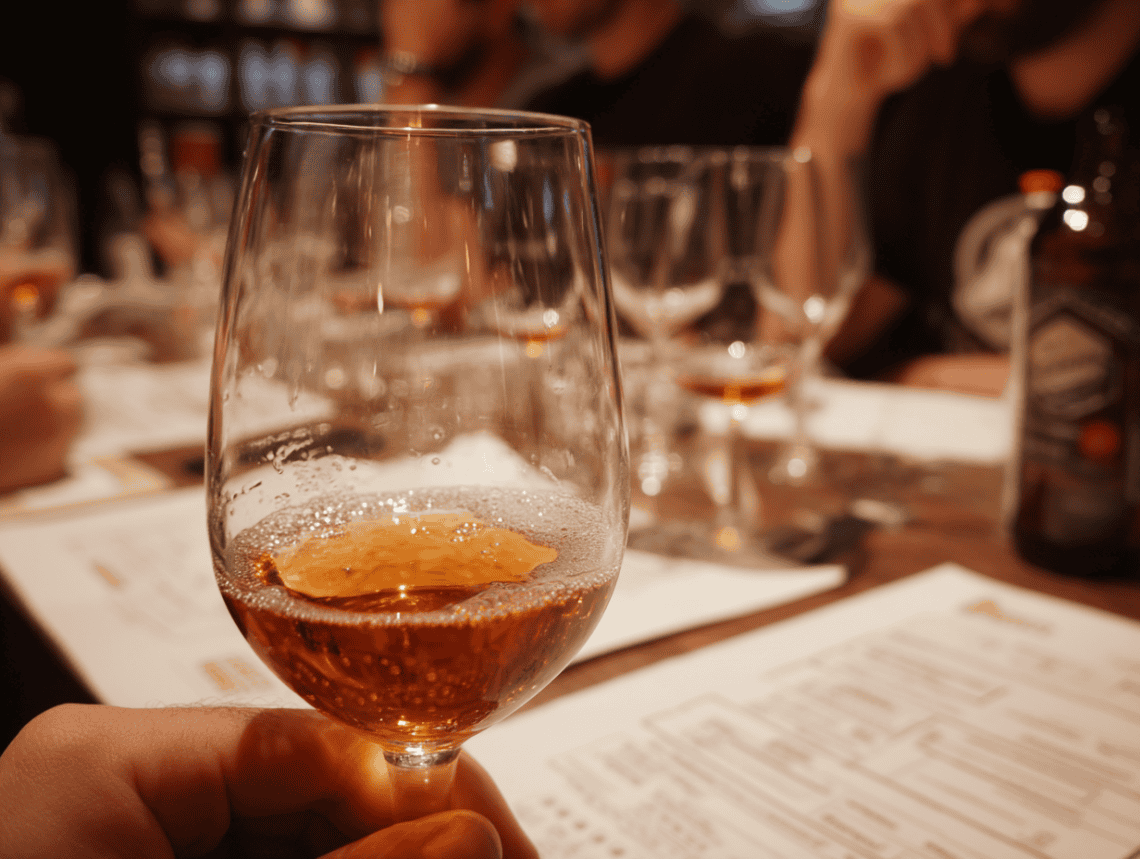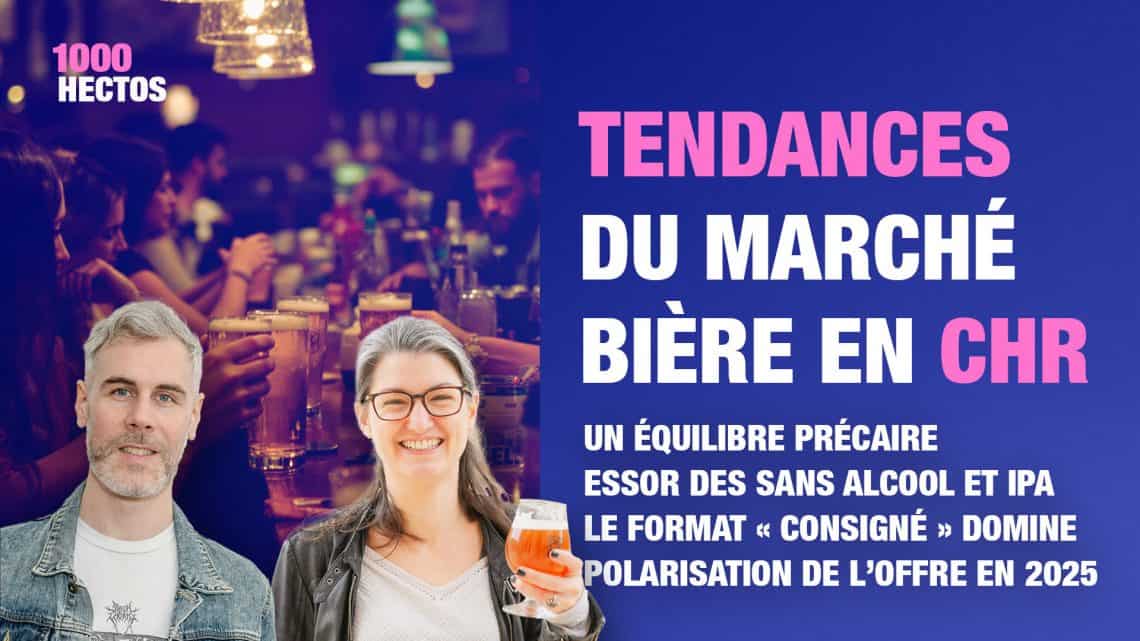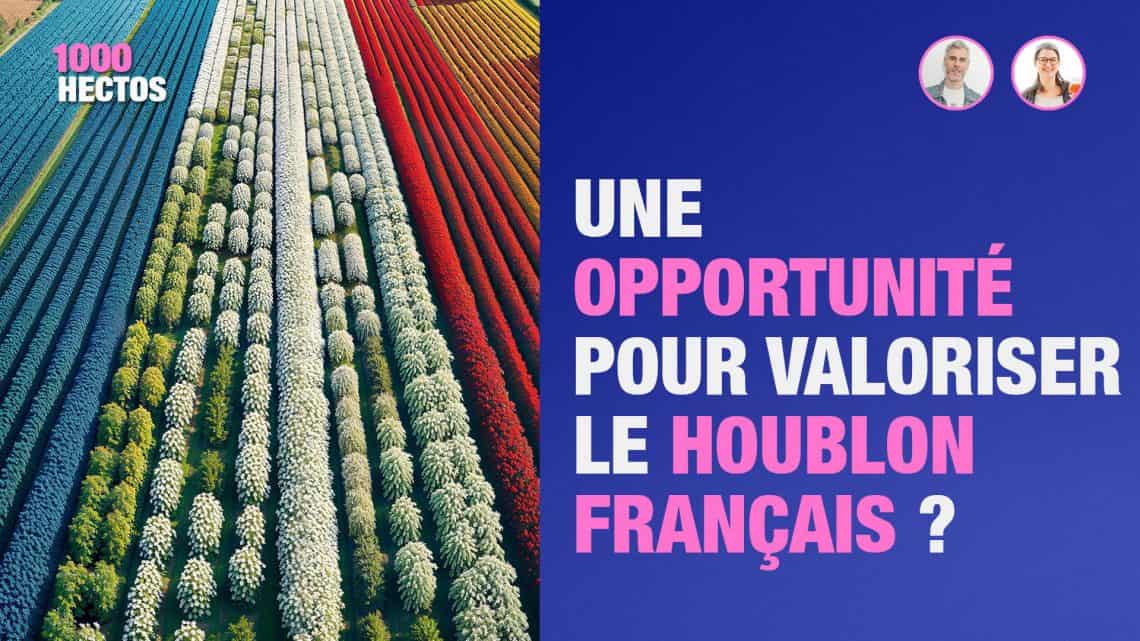5 steps to maximize the impact of beer competitions
In an increasingly saturated brewing market, many breweries are seeing a loss of medals and visibility in competitions, where they once shone. This issue, raised in a recent episode of the 1000 Hectos podcast hosted by Ludovic Mornand and Dorothée Van Agt, deserves in-depth analysis. How can we explain this loss of «hype» and, above all, what strategies can we put in place to regain a place of choice in competitions and capitalize on these victories?
This article details the reasons for this phenomenon and suggests a five-step method for regaining your place among the industry's leading breweries, while maximizing the commercial impact of your competition entries.
First and foremost: Understand the causes of the loss of medals and reputation
Before defining an effective strategy, it's essential to identify the factors that may explain why a once award-winning brewery is now struggling to stand out in competitions.
Rapidly changing markets and consumer expectations
The brewing sector is constantly evolving, with new products and trends in rapid succession. Once-innovative styles such as certain IPAs are fast becoming classics, while new categories are emerging:
- The rise of the alcohol-free craft
- The explosion of NEIPAs and other Hazy IPAs
- The development of sour beers and sours
- The growing popularity of ephemeral beers and collaborations
As the speakers point out: «Market trends are constantly evolving, and so are tasters» abilities. Today, having tasted more and more beers, we expect higher standards than we did 10 or 20 years ago.»
What was worth medals yesterday may seem trivial today, even if the intrinsic quality of the product remains the same.
Competition multiplied by the explosion of microbreweries
The number of craft breweries has literally exploded in recent years. This proliferation of players has several direct consequences:
- More contestants, diluting the statistical chances of win medals
- The emergence of ultra-specialized breweries with perfect mastery of certain styles
- Increased creativity that constantly redefines innovation standards
«When you look at the evolution of the number of beers in competitions, it's always increasing,» explains Dorothée Van Agt. «We end up with more beers to evaluate, and in there, there are those who master the style, those who make quality beers, and those who go for originality.»
Juries with constantly evolving evaluation criteria
Competition juries are also evolving, both in terms of composition and evaluation criteria:
- Jurors develop ever finer expertise
- Changing tastes and sensory expectations
- The ability to surprise becomes a decisive criterion
- The balance between tradition and innovation is constantly reassessed
The division of beers into categories also raises questions. As Ludovic and Dorothée point out: «There's always this controversy about categories. In other words, at some point, beers have to be put into categories. And sometimes, it's complicated for certain breweries.»
Post-competition communication often inadequate
Winning a medal is only the first step. Exploiting that victory is often overlooked:
- Lack of Brand Research post-competition
- No capitalization on juror feedback
- Insufficient communication with distributors and points of sale
- Weak emphasis on medals on packaging and marketing materials

5 strategic steps to win back the hype and maximize the impact of brewing competitions
On the basis of this analysis, here's a five-step methodology for regaining the upper hand in competitions and turning these entries into growth levers.
Step 1 - Rethink your production with method and innovation
The quality and originality of your products are the foundation of any strategy for winning back competitions.
Analyze and revisit your beer ranges
Take the time to evaluate your current range objectively:
- Which recipes could benefit from a creative revisit?
- Which trendy hops or modern techniques could bring new life?
- What collaborations could generate interest and renewal?
Consider launching a limited range, or collaborating with a brewery renowned for innovation, to create a positive halo effect for your entire brand.
Rely on the impeccable quality of your products
Quality remains the fundamental criterion for any serious competition. On this point, Ludovic adds:
«I find it very interesting to tell the story of victory. You can tell it on many different media and in many different ways - on your website, on a blog post, on a podcast episode.
Dorothée, for her part, stresses the importance of rigorous quality control:
«Devote special effort to detecting and eliminating defects. Many of the beers entered in competitions have crippling defects that could have been avoided.»
To do this:
- Train your team to detect defects
- Implement strict quality control protocols
- Ensure the freshness and stability of your products
- Regularly test your beers under real tasting conditions
Explore emerging or under-represented styles
Rather than directly confronting the most hotly contested categories, consider the development of lesser-represented styles:
«Going to work in styles where there are fewer people, there's less competition. And if you're sure of what you're doing, it's a win-win situation,» advises Dorothée Van Agt.
Certain styles, such as revisited historic beers, mixed fermentations or certain alcohol-free categories, can offer significant opportunities for differentiation.
Step 2 - Back in the spotlight at trade fairs
Trade shows are an essential way of showcasing your innovations and creating a buzz around your brand.
Strategically select high-visibility events
Not all trade shows are created equal in terms of impact and return on investment:
- Identify 2 to 3 high-profile national or international trade shows (Planet Beer, Paris Beer Festival, etc.)
- Also consider specialist trade fairs that correspond precisely to your positioning
- Balance business and public events according to your business objectives
Offer differentiating and memorable events
To stand out at trade fairs where dozens of breweries rub shoulders :
- Organize themed masterclasses
- Offer private or guided tastings
- Develop original food-beer pairings, a cocktail stand
- Consider on-site collaborations with other exhibitors
A particularly interesting suggestion from Ludovic: beer-based cocktails. «It's a superb idea,» enthuses Dorothée Van Agt.
Optimize the visitor experience on your stand
Your stand experience is as important as the products themselves:
- Create an immersive stand that tells your story
- Develop interactive content that encourages engagement
- Set up QR codes to collect live feedback
- Focus on scenography and the overall sensory experience
Step 3 - Target and prepare your contest entries
A strategic approach to competitions can significantly increase your chances of success.
Identify the right competitions for your products
Not all competitions are created equal, either in terms of prestige or in terms of relevance to your products:
«You don't just send any beer to any competition,» says Dorothée Van Agt. «You're going to look at the reputation of the competition, you're going to look at the quality of the juror.»
Recognized competitions include :
- France Bière Challenge
- World Beer Awards
- Brussels Beer Challenge
- Concours Général Agricole
- International Beer Challenge
Also consider regional competitions, which can provide valuable local visibility: «I think it's very good because it allows us to have a more precise and interesting com’ on the territory.»
Carefully prepare your samples
The quality and freshness of the samples are crucial:
- Pay particular attention to packaging and freshness
- Anticipate the time between dispatch and actual tasting
- Make sure that the product you send is representative of your standard production.
- Check for defects before shipping
«If it's not clean when it arrives on a competition jury table, it can't be clean on a beer cellar shelf or in a bar,» Dorothée Van Agt wisely reminds us.
Challenge your teams on the selection of beers to present
The selection of products to be presented deserves careful consideration:
- Organize in-house blind tastings
- Ask external panels for an objective assessment
- Compare your products with market benchmarks in their category
- Strategically assess in which categories you have the best chances
Step 4 - Turn your medals into sales leverage through branding
A medal is only as good as the use you make of it.
Prepare your graphic assets
Anticipate your post-contest communication:
- Create stickers and buttons for your packaging
- Prepare visuals for your social networks
- Develop behind-the-scenes stories and video content«
- Design specific point-of-sale displays for your distributors
Tell the story behind your victory
A medal gains in impact when it is part of a narrative:
- Share the journey of innovation that led to this award
- Highlight the team behind the beer
- Capitalize on positive feedback from jurors
- Create an emotional connection with your audience
Dorothée Van Agt suggests an innovative approach: «Tasting feedback is like customer feedback. There's nothing to stop you taking a sentence from the feedback that highlights your product, putting quotation marks around it and writing ‘France Beer Challenge juror’ underneath.»
This approach humanizes the competition and creates a link between jurors and consumers.
Activate all your communication channels
Maximize the impact of your victory by activating all your channels:
- Press relations (specialized and local media)
- Targeted newsletters (B2B and B2C)
- Distributor and point-of-sale communications
- Social networks and website
- Events and tastings
Step 5 - Ensuring effective sales follow-up
Winning is just a starting point, and must be part of an overall business strategy.
Organizing post-victory events
Extend the impact of your reward with dedicated events:
- Tasting evenings at your partner wine shops
- Meet the brewer« events to showcase your expertise
- Special events in CHR establishments
- Brewery tours focusing on your medal-winning beers
Create special «medal-winning» editions»
Capitalize commercially on your medals:
- Develop boxes or limited editions of your award-winning beers
- Create «medallist» packs combining your various rewards
- Consider vintage or reserve versions of your most popular beers
- Offer exclusive formats for CHR and export markets
Measure the impact on your sales and brand awareness
To optimize your strategy, measure your impact precisely:
- Track sales of medal-winning products
- Analyze the performance of contest-related content on your networks
- Collect feedback from your distributors and customers
- Assess the impact on your overall brand image
a global approach to maximize the impact of competitions
Reclaiming one's place among the breweries that regularly win medals requires a holistic approach that goes far beyond simply improving recipes. From production and communication to a targeted competition strategy, every element contributes to rebuilding an image of excellence and innovation.
One of the most crucial points, however, remains the intrinsic quality of the product. As Ludovic and Dorothée insist, many of the beers entered in competitions suffer from defects that could have been avoided by prior critical tasting and a more rigorous quality control process.
Medals are not an end in themselves, but a powerful marketing tool that, when used intelligently, can significantly boost a brewery's visibility and sales. The real victory lies in your ability to turn these recognitions into a lasting commercial advantage.
FAQ : Maximizing the impact of brewing competitions
Did you enjoy this episode of 1000 Hectos ? Give it a try...
- 5 steps to maximize the impact of beer competitions
- How to judge a beer at a competition: behind the scenes and the truth about medals
- Beer market trends in CHR 2024
- Brewing news: between fiscal challenges, alcohol-free and sustainable innovations
- The secrets of mascots to boost your brand identity
- New European regulations raise questions about pesticides in hops





